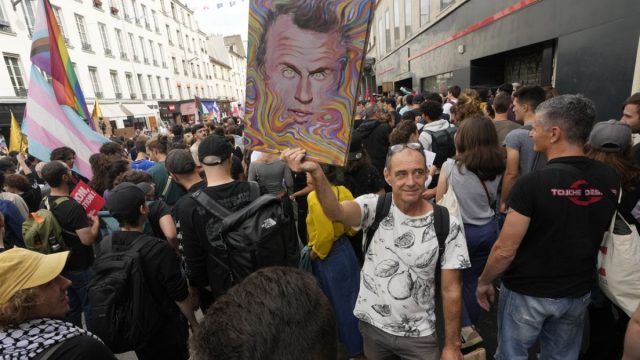France is in the midst of a political storm following President Emmanuel Macron’s recent appointment of Michel Barnier as prime minister. This decision has sparked a wave of protests across the country, reflecting France’s deep political divisions.
The president Macronin a movement that has been described as an attempt to consolidate his power, appointed Barniera 73-year-old conservative politician, as the new head of Government, prime minister in France.
This decision has been interpreted by many, especially the left, as a rejection of the will of the electorate expressed in the recent legislative elections.
Thousands of protesters took to the streets in response to the call of left-wing leaders, particularly Jean-Luc Mélenchonleader of the France Insoumise party. The authorities expected tens of thousands of protesters throughout the country, with concentrations in more than 150 pointsincluding a significant demonstration in the Place de la Bastille in Paris.
Barnier faces a monumental challenge upon taking office. He must form a Government capable of navigating a fractured National Assembly, where the political spectrum is deeply divided between the extreme leftthe extreme right and the weakened centrist bloc of Macron.
Criticism and controversies over the election of Barnier
Barnier’s appointment has been the subject of immediate criticism. His political record, which includes a vote against the decriminalization of homosexuality in 1981, has been quickly noted by the media and opponents. This is in stark contrast to his predecessor, Gabriel Attal, who was France’s first openly gay prime minister.
Many critics argue that the decision of betting on Barnier contradicts Macron’s original promise to break with the old political order, and now finds itself fighting the instability it once promised to overcome.
As Barnier begins to form his cabinet and pledges to listen to public concerns, especially about France’s public services, unrest in the streets could determine the future of your government.







